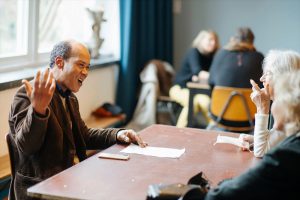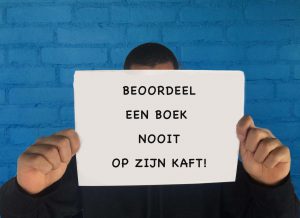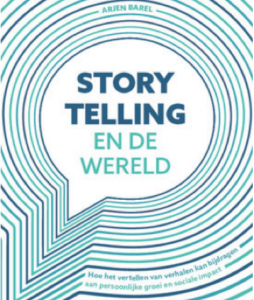Wie organiseert Wat en Wanneer?
Who organises What and When?
Bekijk het in de AGENDA of EVENEMENTEN LIJST
Check it in the AGENDA or EVENTS LIST
 "The European Commission support for the production of this publication does not constitute an endorsement of the contents which reflects the views only of the authors, and the Commission cannot be held responsible for any use which may be made of the information contained therein."
"The European Commission support for the production of this publication does not constitute an endorsement of the contents which reflects the views only of the authors, and the Commission cannot be held responsible for any use which may be made of the information contained therein."
Wie organiseert Wat en Wanneer?
Who organises What and When?
Bekijk het in de AGENDA of EVENEMENTEN LIJST
Check it in the AGENDA or EVENTS LIST
 Welkom op de living libraries website!
Welkom op de living libraries website!
Wij hebben deze gemaakt voor iedereen die het leuk vindt om zichzelf te ontwikkelen als verteller in, of organisator van ‘living libraries’. Dit is de naam die Storytelling Center heeft gegeven aan kleinschalige evenementen waarbij mensen een persoonlijk verhaal delen met een, maximaal drie luisteraars. Tot voor kort organiseerden we regelmatig zulke living libraries, maar door onze vele andere activiteiten is dit in het gedrang gekomen. Daarom dragen we de living libraries over aan vrijwilligers, die we getraind hebben in de kunst van het delen van verhalen en in het zelfstandig organiseren van living libraries in bijvoorbeeld bibliotheken, bejaardenhuizen, festivals of bij mensen thuis. Een paar van deze vrijwilligers kunnen nu zelf weer andere vrijwilligers trainen, waardoor het voortbestaan van de living libraries beter geborgd is.
Op deze website bieden we, behalve trainingsmateriaal en achtergrondinformatie, een platform aan om informatie over activiteiten te delen, vertellers te werven en het netwerk uit te breiden.
 Welcome to the Living Libraries website!
Welcome to the Living Libraries website!
We have created this for everyone who likes to develop themselves as a storyteller or organiser of living libraries. This is the name Storytelling Center has given to small-scale events where people share a personal story with one, maximum three, listeners. Until recently, we regularly organised such living libraries, but our many other activities have pushed this into the background. Therefore, we are handing over the living libraries to volunteers, who we have trained in the art of sharing stories and in organising living libraries independently, for example in libraries, homes for the elderly, festivals or in people’s homes. A few of these volunteers are now able to train other volunteers themselves, which contributes to the continuation of the living libraries.
On this website, besides training material and background information, we offer a platform to share information about activities, recruit storytellers and expand the network.

 Deze website is een van de resultaten van het Europese COBU project waarin het Nederlandse Storytelling Centre samenwerkt met partners in Spanje, Frankrijk en Hongarije. In deze landen worden vergelijkbare trainingen gegeven met als doel mensen te motiveren op vrijwillige basis activiteiten te organiseren met of voor huis-, buurt-, stad-, landgenoten. COBU is de afkorting van ‘COmmunity BUilding through self-managed volunteer groups”, oftewel in het Nederlands; het opbouwen van gemeenschappen door zelf-beheerde vrijwilligersgroepen. Als je meer over het COBU project wil weten, bezoek dan deze website: cobuplatform.
Deze website is een van de resultaten van het Europese COBU project waarin het Nederlandse Storytelling Centre samenwerkt met partners in Spanje, Frankrijk en Hongarije. In deze landen worden vergelijkbare trainingen gegeven met als doel mensen te motiveren op vrijwillige basis activiteiten te organiseren met of voor huis-, buurt-, stad-, landgenoten. COBU is de afkorting van ‘COmmunity BUilding through self-managed volunteer groups”, oftewel in het Nederlands; het opbouwen van gemeenschappen door zelf-beheerde vrijwilligersgroepen. Als je meer over het COBU project wil weten, bezoek dan deze website: cobuplatform.
Als je meer over de partners in dit COBU project wil weten, kijk dan op de websites van Képes, Elan interculturel, La Xixa en Storytelling Centre.

This website is one of the results of the European COBU project in which the Dutch Storytelling Centre cooperates with partners in Spain, France and Hungary. In these countries similar trainings are given with the aim of motivating people to organise voluntary activities with or for people living in their own homes, neighbourhoods, cities or fellow countrymen. COBU is the abbreviation for “COmmunity BUilding through self-managed volunteer groups”. If you’d like to know more about this project, visit this website: cobuplatform.
If you would like to know more about the partners in this COBU project, take a look at the websites of Képes, Elan interculturel, La Xixa and Storytelling Centre.

 Het zal niet verbazen dat ‘wij van het Storytelling Centre’ het delen van verhalen, storytelling, als methode gebruiken. Dat is immers onze expertise en die delen wij graag met anderen. Wat veel mensen zich misschien niet realiseren, is dat je bij het leren delen van verhalen veel meer leert dan alleen dat. Denk aan het ontwikkelen van bijvoorbeeld luister- en presentatie vaardigheden, handigheid in hoofd- en bijzaken onderscheiden en ook aan de ontwikkeling van soft skills als empathie, met commentaar om kunnen gaan, conflict oplossen: vaardigheden die van pas komen als je zelf een living library gaat organiseren en mensen gaat begeleiden in het delen van hun persoonlijke verhaal.
Het zal niet verbazen dat ‘wij van het Storytelling Centre’ het delen van verhalen, storytelling, als methode gebruiken. Dat is immers onze expertise en die delen wij graag met anderen. Wat veel mensen zich misschien niet realiseren, is dat je bij het leren delen van verhalen veel meer leert dan alleen dat. Denk aan het ontwikkelen van bijvoorbeeld luister- en presentatie vaardigheden, handigheid in hoofd- en bijzaken onderscheiden en ook aan de ontwikkeling van soft skills als empathie, met commentaar om kunnen gaan, conflict oplossen: vaardigheden die van pas komen als je zelf een living library gaat organiseren en mensen gaat begeleiden in het delen van hun persoonlijke verhaal.
 It will come as no surprise that ‘we at the Storytelling Centre’ use sharing stories, storytelling, as our method. That is our expertise and we like to share it with others. What many people may not realise is that learning to share stories teaches you much more than just that. Think of the development of listening and presentation skills, the ability to distinguish between main and secondary issues and also the development of soft skills such as empathy, dealing with comments and conflict resolution: skills that come in handy when you are organising your own living library and guiding people in sharing their personal stories.
It will come as no surprise that ‘we at the Storytelling Centre’ use sharing stories, storytelling, as our method. That is our expertise and we like to share it with others. What many people may not realise is that learning to share stories teaches you much more than just that. Think of the development of listening and presentation skills, the ability to distinguish between main and secondary issues and also the development of soft skills such as empathy, dealing with comments and conflict resolution: skills that come in handy when you are organising your own living library and guiding people in sharing their personal stories.
In het kader van het COBU project hebben de partners onderzoek gedaan naar allerlei vormen van vrijwilligerswerk en de organisatie daarvan. Onze bevindingen hebben we samengebracht in het document: ‘Klein blijven Grote impact hebben‘ (zie hieronder).
Een van de vormen van organisatie van vrijwilligers waar we in het bijzonder aandacht aan besteden, is die waarin een groep vrijwilligers zelfstandig activiteiten ontwikkelt en organiseert, niet aangestuurd door een organisatie. De term die hiervoor wordt gebruikt is ‘zelfsturend’. De taken worden door en binnen de groep vastgesteld en verdeeld en doorgaans neemt één persoon de leiding. In het document beschrijven we enkele voorbeelden van bestaande zelfsturende vrijwilligersgroepen (of teams).
Mocht je overwegen om zelf een vrijwilligersteam op te zetten om living libraries mee te organiseren, dan kunnen we je daarbij helpen. Je kan een training volgen bij een vrijwilliger die door ons is getraind en gebruik maken van trainingsmateriaal dat we op deze website beschikbaar stellen. En je kan uiteraard bij het Storytelling Centre terecht met vragen.
Hieronder vind je een beschrijving van de methode om vrijwilligersteams op te zetten, die we hebben ontwikkeld en getest, inclusief beschrijvingen van allerlei oefeningen. (Zie ‘Zelfsturende vrijwilligersnetwerken opzetten – een gids‘.) De oefeningen zijn heel divers en hebben niet allemaal met storytelling te maken. We hebben onze eigen ervaringen gebundeld in het document ‘Ervaringen met het opzetten van zelfsturende vrijwilligersgroepen – vier illustratieve casestudies‘. Ook in dit document worden allerlei activiteiten beschreven, evenals in de bijlagen bij dit document, de annex. Beide zijn ook hieronder opgenomen en net zoals alle documenten te downloaden.
Within the framework of the COBU project, the partners have carried out research into various forms of voluntary work and how they are organised. Our findings have been compiled in the document: ‘Staying small impacting big‘ (see below).
One of the forms of organising volunteers that we pay particular attention to is when a group of volunteers independently develop and organise activities, not steered by an organisation. The term used for this is ‘self-management’. The tasks are defined and distributed by and within the group and usually one person takes the lead. In the document we describe some examples of existing self-managed volunteer groups (or teams).
If you are considering setting up a volunteer team to help organise living libraries, we can help you. You can follow a training course with a volunteer trained by us and use the training materials and activities platform we provide on this website. And, of course, the Storytelling Centre is there to answer your questions.
Below you find a description of the method for setting up volunteer teams that we have developed and tested, including descriptions of all kinds of exercises. ( See ‘Guidebook for setting up self-managed volunteer groups‘) The exercises are very diverse and not all of them have to do with storytelling. We have compiled our own experiences in the document ‘Experiences in setting up self-managed volunteer groups – four illustrative case studies‘. A variety of activities are also described in this document, as well as in its annex. Both are also included below and, like all documents, available for download.
 Zodra de eerste registraties binnen zijn, vind je hier de contactgegevens van mensen die als verteller willen deelnemen aan living libraries of ze zelf wel willen organiseren.
Zodra de eerste registraties binnen zijn, vind je hier de contactgegevens van mensen die als verteller willen deelnemen aan living libraries of ze zelf wel willen organiseren.
As soon as the first registrations are in, you will find on this page the contact details of people who want to participate as storytellers in living libraries or who want to organise them themselves.
 Als je gebruik wilt maken van de agenda en evenementenlijst op deze website om aandacht te vragen voor jouw activiteiten die daaruit voortgekomen zijn, en opgenomen wil worden in het Living Libraries netwerk, kan je je hier (gratis) registreren. Een van ons zal vervolgens contact met je opnemen.
Als je gebruik wilt maken van de agenda en evenementenlijst op deze website om aandacht te vragen voor jouw activiteiten die daaruit voortgekomen zijn, en opgenomen wil worden in het Living Libraries netwerk, kan je je hier (gratis) registreren. Een van ons zal vervolgens contact met je opnemen.
of
Login als je je al geregistreerd hebt
If you want to use the calendar and events list on this website to draw attention to your activities and be included in the Living Libraries network, you can register (free) here. One of us will then contact you.
or
Login if you’re already registered
 Storytelling Centre Amsterdam
Storytelling Centre Amsterdam
Meer en Vaart 290
1068 LE Amsterdam
020 4121415
info@storytelling-centre.nl
Wil je meer over ons en onze activiteiten weten, kijk dan op www.storytelling-centre.nl
| Cookie name | Active |
|---|
Our website address is: https://livinglibraries.eu.
When visitors leave comments on the site we collect the data shown in the comments form, and also the visitor’s IP address and browser user agent string to help spam detection.
An anonymized string created from your email address (also called a hash) may be provided to the Gravatar service to see if you are using it. The Gravatar service privacy policy is available here: https://automattic.com/privacy/. After approval of your comment, your profile picture is visible to the public in the context of your comment.
If you upload images to the website, you should avoid uploading images with embedded location data (EXIF GPS) included. Visitors to the website can download and extract any location data from images on the website.
If you leave a comment on our site you may opt-in to saving your name, email address and website in cookies. These are for your convenience so that you do not have to fill in your details again when you leave another comment. These cookies will last for one year.
If you visit our login page, we will set a temporary cookie to determine if your browser accepts cookies. This cookie contains no personal data and is discarded when you close your browser.
When you log in, we will also set up several cookies to save your login information and your screen display choices. Login cookies last for two days, and screen options cookies last for a year. If you select "Remember Me", your login will persist for two weeks. If you log out of your account, the login cookies will be removed.
If you edit or publish an article, an additional cookie will be saved in your browser. This cookie includes no personal data and simply indicates the post ID of the article you just edited. It expires after 1 day.
Articles on this site may include embedded content (e.g. videos, images, articles, etc.). Embedded content from other websites behaves in the exact same way as if the visitor has visited the other website.
These websites may collect data about you, use cookies, embed additional third-party tracking, and monitor your interaction with that embedded content, including tracking your interaction with the embedded content if you have an account and are logged in to that website.
If you request a password reset, your IP address will be included in the reset email.
If you leave a comment, the comment and its metadata are retained indefinitely. This is so we can recognize and approve any follow-up comments automatically instead of holding them in a moderation queue.
For users that register on our website (if any), we also store the personal information they provide in their user profile. All users can see, edit, or delete their personal information at any time (except they cannot change their username). Website administrators can also see and edit that information.
If you have an account on this site, or have left comments, you can request to receive an exported file of the personal data we hold about you, including any data you have provided to us. You can also request that we erase any personal data we hold about you. This does not include any data we are obliged to keep for administrative, legal, or security purposes.
Visitor comments may be checked through an automated spam detection service.